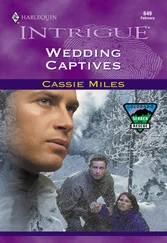Norman Manea - Captives
Здесь есть возможность читать онлайн «Norman Manea - Captives» весь текст электронной книги совершенно бесплатно (целиком полную версию без сокращений). В некоторых случаях можно слушать аудио, скачать через торрент в формате fb2 и присутствует краткое содержание. Год выпуска: 2014, Издательство: New Directions, Жанр: Современная проза, на английском языке. Описание произведения, (предисловие) а так же отзывы посетителей доступны на портале библиотеки ЛибКат.
- Название:Captives
- Автор:
- Издательство:New Directions
- Жанр:
- Год:2014
- ISBN:нет данных
- Рейтинг книги:3 / 5. Голосов: 1
-
Избранное:Добавить в избранное
- Отзывы:
-
Ваша оценка:
- 60
- 1
- 2
- 3
- 4
- 5
Captives: краткое содержание, описание и аннотация
Предлагаем к чтению аннотацию, описание, краткое содержание или предисловие (зависит от того, что написал сам автор книги «Captives»). Если вы не нашли необходимую информацию о книге — напишите в комментариях, мы постараемся отыскать её.
Captives
This is a moving account of a country shaken by communism and anti-Semitism and haunted by recent atrocities, from "a distinguished writer whose vision of totalitarianism is close to Kafka's cloudy menace, universal yet internalized" (Richard Eder,
).
Captives — читать онлайн бесплатно полную книгу (весь текст) целиком
Ниже представлен текст книги, разбитый по страницам. Система сохранения места последней прочитанной страницы, позволяет с удобством читать онлайн бесплатно книгу «Captives», без необходимости каждый раз заново искать на чём Вы остановились. Поставьте закладку, и сможете в любой момент перейти на страницу, на которой закончили чтение.
Интервал:
Закладка:
Without glancing your way, the dead man’s relatives accepted your presence at the service in that mountain village because they could not forget that the dead man’s belated passion for books had been roused by an elementary school teacher, whom they’d driven away so many times, and convinced themselves that the deceased might have lived longer if he hadn’t let himself be won over by this last silly stunt.
. . A sleeping sun kept rolling in the spirals of the wheels, and you continued to perceive nothing else, as if the old peasant, Abesei, had never existed or remained as alive as he was on those evenings when he’d take a crumpled copy of My First Book out from under his woolen vest and start practicing his ABCs.
With maybe twenty meters to go, you raised your eyes. A couple was just coming out of the village store that served as a pub. You quickly recognized the forestry administrator, Dan Vasilescu. The couple halted. The woman moved closer to her partner. They remained glued to the spot. Your pace slowed as you got closer to them. “Danny, you understand,” “Danny, I always,” “Danny, you must,” “Danny, it wouldn’t be right.” Your hands clenched the handlebars of the wheelchair. For an instant, the woman shifted her gaze. She was fat and middle aged, or rather ageless, perhaps she was even still young. The white lace of her collar lit her bright cheeks; hair aflame in the red dusk, eyes intensely blue, for a moment she had been radiant. Linking arms, the couple resumed walking. “Danny, I can’t believe,” “Danny, this beginning,” “Danny, this flight,” “Danny,” “Danny.” In the blink of an eye, her lamentations had purified the surrounding air. Impossible to understand exactly what had made you freeze: the voice of a fat and unhappy princess out of a fairy tale, the nickname Danny used for Dan , the voice in lamento , that innocence of an angelic child. Vasile Obreja’s hands trembled nervously. You started pushing his wheelchair again. Perhaps the crippled elementary schoolteacher wanted to avoid meeting the forester, who had a bad reputation in the village, where he was trying to absolve himself of some political guilt.
You might have met Monica Smântănescu back then, in one of the moments she believed she was being healed. . then, as she leaned tenderly on the shoulder of the new Danny.
It's impossible to come down from your hiding place in the bluish mountains, remembering only the face of the old peasant with kind eyes and a forgiving smile, a timeless man, anyhow, a man lacking old age, who had crossed the threshold of time — one as quiet as his native mountains, clear waters, forests — an old man healed of hate, fright, or decay. . Marveling at the capital letters of the alphabet, who would go on repeating the letters like a magic spell that could open the magnificent realm of youth. It’s impossible to leave the mountains that are silent except for the sound of damp earth covering the grave dug for Iorgu Abesei, who spent eighty years traversing five kilometers of hills to end up flipping through the ABCs. It’s impossible to leave with the memory of teacher Vasile Obreja’s shoulders and his wheelchair, pushed through the abrupt, narrow alleys, toward the locked doors of villagers bored by talkative do-gooders who disrupted their tranquil poverty.
Not even the hypothetical meeting with Monica and her pleasant voice — after her visit to the clinic where her mother Rebeca Smântănescu vegetated — could change your feelings of disgust with human beings, your disgust with their love and betrayals, so that you might come down from the mountains healed, emptied of the past, indifferent to any present or future.
Alone, frozen in the mountains’ lucid silence, among people desolated by poverty. . A meaningless refuge at the end of the world. . The silvery water, the snow’s hush on cold evenings, the tremor of an old man charged with wonder: none of that offered anything to your despair. In their silence, the tall, pure mountains stood indifferent: those huge specters, from whom you couldn’t expect a thing, so that you went on twisting those sparse strands of thin, weak hair, and your bits of fallen hair reminded you: the struggle goes on; there’s no miracle cure for memory. You must accept the disintegrations, even if the simple gesture of passing a hand through your hair turns out to be prohibited as well, just as the gesture of a passerby was once like some spontaneous combustion — long ago, recently, by chance — when he brought his hand to his throat. You were leaving the wilderness of that precarious stopover empty-handed, yet carrying everything you hadn’t yet managed to lose, replace, or forget; hands trembling in sparse hair, quickly withdrawn, frightened of the shedding; hands stiffened on the bark of a tree.
The hours there taught forgetfulness, however — gradually, slowly, hesitantly — crumbling, separating, unraveling, and scattering partial gestures, voices, and smiles. The struggle with memories went on sending small signals. . strands of hair kept falling when you least expected. The lesson of forgetting would have to be lived, forever, without end.
You stood with a hand on the bark of the tree. Wide eyes, lips damp with expectation, dread, amazement: your lunar face prepared for the greed of a new era, prey to another present.
You would have to open the door on a spring morning and show the newcomer and stranger the place near the window where the boss, Caba, bent over a desk, smoothing a small heap of banknotes with long, pale fingers. The stranger, the new engineer, brought a hand to the collar of his blue shirt. Your hair rose. Your hand pressed the wall.
After that you leaned in the cool corridor for days like years, your hand pressed to the wall, waiting for the stranger, now your colleague, to momentarily appear. The weight of the suicidal father began to lift. Your arms freed themselves. Curse, burden, and despotic memory fell away. You were becoming free. . for the phantom of another impostor.
• • •
The father with the luminous gaze hung himself one autumn morning in a shed in the courtyard. He was found by his daughter, who tried to reanimate him with resuscitation techniques for the drowned. For the next two weeks, they tortured him with emergency care: he came back to life gradually, miraculously. It wasn’t easy.
Captain Bogdan Zubcu didn’t do anything to suggest he’d try again. He lived through a prolonged convalescence. He no longer left his house, except sometimes by chance and only for minutes. He withdrew to his room. He became even more silent. The family avoided asking him questions or making tiring demands. His nervousness seemed to disappear, along with the grimace that contracted the left side of his face. He no longer hastily brought his trembling fingers to his throat. During his short appearances, his startled reactions abated. It was the end of autumn, 1952.
That winter, two officials visited the Zubcu house. The Captain left with them after a long conversation. He didn’t come home after that for several months, a year, maybe more. The authorities conducted an investigation in several cities, the capital included. It wasn’t possible to find out what the Captain was accused of, and he refused afterward to comment on the facts. There were rumors about the Captain’s conduct during the war, about which he hadn’t said a thing. Some said the investigation had to do with the military administration of a camp: that survivors had appeared, trying to denounce him. Mrs. Zubcu stubbornly protected her daughter against such insinuations. It was hard to say what the woman had found out, since they asked no questions and she displayed no change of attitude.
The Captain returned after a long time, and told you that he had not been found guilty and that he recovered his civil rights. You no longer believed him. He added that he might be interrogated further, but in the meantime he would try to find a job to help the family’s financial situation. He was blinking again, almost non-stop. He couldn’t find the right words and paused all the time. Conversations tired him — that was apparent in the precipitous way he rubbed his hands and then brought one or the other to his throat. Indeed, he took steps to find a job. He remembered those who had come, several years ago, to solicit his participation in the construction of a new type of society. Most of them were no longer in the same positions. The few who remained seemed to be involved in investigations similar to those he had been involved in, and they seemed to be trying to avoid him. His old comrades in arms made vague promises, but they never followed through. He decided to try getting a job on his own. In the end, he was hired at the large factory nearby. He quickly accustomed himself to the new job. He worked three different shifts in rotation, obediently and conscientiously. But all of these self-imposed efforts wore him out.
Читать дальшеИнтервал:
Закладка:
Похожие книги на «Captives»
Представляем Вашему вниманию похожие книги на «Captives» списком для выбора. Мы отобрали схожую по названию и смыслу литературу в надежде предоставить читателям больше вариантов отыскать новые, интересные, ещё непрочитанные произведения.
Обсуждение, отзывы о книге «Captives» и просто собственные мнения читателей. Оставьте ваши комментарии, напишите, что Вы думаете о произведении, его смысле или главных героях. Укажите что конкретно понравилось, а что нет, и почему Вы так считаете.












